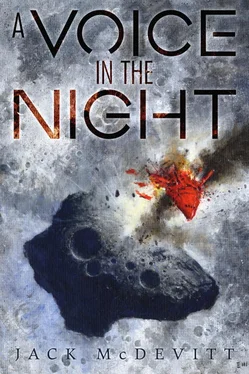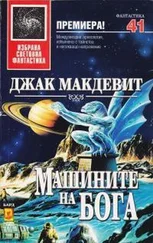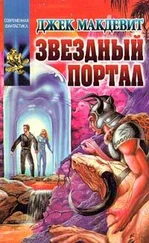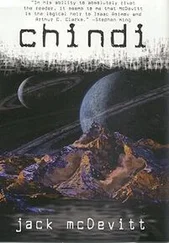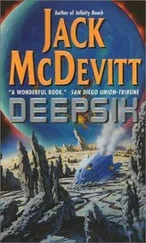But the inner airlock hatch was shut.
At first I thought there’d been a systems failure and the electronics had closed it. Then I realized what had happened. “George, what are you doing?”
“Get clear, Kellie. I’m going to do what I can for the books.” His voice was strained on the link.
“That’s crazy.”
Not too far ahead, another mountain range was approaching. I pulled the handle out of the housing and tried to open the inner door, but it wouldn’t turn. The son of a bitch was holding the hatch shut.
“George, let go.”
“Kellie, please. The longer you stand there the worse my chances.”
“You’re not even a pilot.”
“I’ve been riding these things all my life. You think I don’t know how they work? It isn’t rocket science, Kellie.” He laughed, but the sound bordered on hysteria. “Please go.”
“Kellie,” said Tod, “what’s going on?”
“Damn you, George. Listen, open up and I’ll stay.” Like hell. I’d pop him one and drag him out.
“No,” he said. “No reason for that. Get out of here—.”
I could have argued. But there was no time and I wasn’t going to throw my life away because somebody else didn’t know when to toss in his cards.
“Kellie, it’s getting late out here.”
Idiot.
I called his name one last time, listened to my heartbeat. And jumped.
My weight soared momentarily as I cleared the dampers, and then all but vanished as I came under the influence of Alpha’s systems. It was the only time I’ve done that, passed from one antigrav field to another, and it was a little like getting punched simultaneously front and rear. Tod hauled me in and we stood looking helplessly at the sinking lander.
“Not your fault, Kellie,” Tod said. “There wasn’t anything you could do.”
“Tod.” It was Jodie, Tod’s AI. She spoke with a Brooklyn accent. “If you and Kellie will shut the hatch and hang on, we can at least gain some altitude.”
Tod closed up and started to pressurize. Meanwhile we both grabbed hold of a support rail and he signaled Jodie. The deck rose.
“George,” I said. “Can you hear me?”
“I hear you, Kellie.”
There didn’t seem much point in recriminations. “Are you still in the chair?”
“Yes.”
“Restraints?”
“—Are already on.”
“Point the thrusters down.”
Pause. “How do I do that?”
Yeah. You know how to operate it. “Red levers on your left. Push full forward.”
I heard him grumbling to himself. Then: “Done.”
“Now turn on the thrusters. Full. You know how to do that?”
“Explain it to me, please.”
While I told him how, the inner airlock door opened and we took our seats. Tod watched him going down and shook his head.
His thrusters fired and his rate of descent slowed. But it wasn’t going to be enough, and even had it been he was moving forward too quickly. The ground was about to become a hopeless tangle of rock and metal.
“Kellie.”
“I’m here, George.”
“I’m sorry. I know this will create a problem for you.”
“Forget it. Just hang on.”
“Okay.”
And pray.
Tod set up a clock. I saw thirty-six seconds begin to tick down.
“Looks too fast, Kellie. I don’t think it’s going to work.”
I didn’t say anything. Didn’t know what to say. He’s watching the ground rush up at him, what am I going to do, tell him everything’s going to be fine, have a nice day?
The last few seconds drained away. And without a sound Delta ripped into the ground. There was a brief flare in the darkness—not enough fuel left for a real explosion—, and he was gone.
They didn’t exactly blame it on me, although the muscles in Sylvia’s jaw did funny things when she saw me again, that night and during the investigation and later at the memorial service. We all said nice things about George, how he always found time for others, how he loved his work, how he was extraordinarily patient. None of it was true. Most of the time his work was fairly routine and he endured it. Now and then it turned up something that seriously engaged his interest, like the books at the Retreat. But that wasn’t the same thing at all.
He did succeed in saving most of them. So he became the hero of the hour, and we all drank to him. A few people looked down their noses at me, visibly grateful that someone had had the guts to stay with the payload.
In the end, though, it didn’t matter, at least as far as translations were concerned. The print—the ink—was smeared beyond recovery. Nobody’s sure yet whether it was that the force field that guarded the Retreat had stayed on for a longer time than anyone had expected, blocking out the preserving vacuum, or whether the occupants of the Retreat had needed a moist environment. Whichever it was, there’d been too much humidity over an extended period. The specialists had enough to conclude that they could detect only one language, that the language used upper and lower case, that it read from right to left, that it used punctuation, and that individual words were separated by spaces.
And that was it. Whatever scientific or philosophical ruminations might have existed therein, whatever timeless novels, whatever observations on the state of the universe, it was all lost.
So when I ventured to suggest to Sylvia that George’s sacrifice had consequently been pointless, she drew herself up in righteous indignation. We were standing in the main room, in front of the oculus, looking out at the spectacle of worlds and rings. The sofa and one of the armchairs had not yet been moved up to the Bromfield . They were huge pieces of furniture, the way everything looked when you were four years old. One of the side walls was in the process of being taken down and prepared for shipment back to Arlington. “Don’t even think it,” she said. “The books are invaluable artifacts, even if we can’t read them.”
Well, maybe there’s something to that. But it didn’t seem like much consolation for what we’d lost. And I couldn’t help recalling George’s comment just before it all started. “We already have the critical information about them. Even if we didn’t have the books, we have the window.”
What critical information?
I related the remark to Sylvia.
She frowned, considered it, and nodded. “Well,” she said, “I guess it’s a reference to the esthetic sense of their owners. And their creators. I suppose that’s significant. Considering what they looked like,”—she managed a smile,—“that comes as something of a surprise.” She turned away to caution one of the technicians to use more care in lifting a section of wall.
I thought there must have been more to it. But it didn’t occur to me until later that, if you stood in front of the oculus at the right angle, you could see your own reflection.
GOOD INTENTIONS

Written with Stanley Schmidt
“Do you believe in UFO’s?”
No, dammit. I don’t believe in anything that hasn’t been parked in my driveway so I could kick the tires and check the gearshift. So don’t ask again. Just because I’m a science fiction writer doesn’t mean I’m demented. I have no time for crop circles, telepathy, alien abductions, power centers, spontaneous combustion, or ancient astronauts. Loch Ness is empty, Atlantis is bunk, and I’ll sleep in any haunted house in the world for five hundred bucks plus expenses. Okay?
Читать дальше
